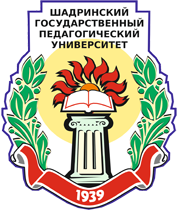Модель оптимизации внутрифирменного обучения линейного персонала посредством E-learning
Model for optimizing in-house training of line personnel through E-learning
Аннотация
Статья посвящена актуальной проблеме оптимизации обучения персонала посредством использования потенциала E-learning. В исследовании представлены современные теоретические и практические аспекты трансформации образовательной парадигмы и оптимизации управления обучением персонала в условиях цифровизации профессионального образования. Разработана модель оптимизации внутрифирменного обучения линейного персонала посредством E-learning. Сформулированы цель, задачи, принципы, подходы к реализации, суть которых заключается в повышении эффективности внутрифирменного обучения линейного персонала посредством E-learning в деятельности сотрудников с учетом особенностей функционирования организации. Этапами реализации структурно-функциональной модели стали: ценностно-целевой, методологический, организационный, функциональный, результативный. Предложены критерии оценки эффективности использования модели: положительная динамика повышения уровня профессиональных компетенций сотрудников; выбор оптимальных стратегий копинг-поведения; повышение производительности труда, вовлеченности персонала в деятельность организации и повышение эффективности работы и др. В исследовании подчеркивается, реализация модели в деятельности современной организации позволит повысить результативность внутрифирменного обучения, повысить квалификацию сотрудников и наметить перспективы карьерного роста персонала.
Abstract: The article is devoted to the urgent problem of optimizing staff training through the use of the potential of E-learning. The study presents modern theoretical and practical aspects of the transformation of the educational paradigm and optimization of personnel training management in the context of digitalization of professional education. A model for optimizing in-house training of line personnel through E-learning has been developed. The goal, objectives, principles, approaches to implementation are formulated, the essence of which is to increase the efficiency of in-house training of line personnel through E-learning in the activities of employees taking into account the characteristics of the functioning of the organization. The stages of implementation of the structural-functional model were: value-target, methodological, organizational, functional, productive. Criteria for evaluating the effectiveness of using the model are proposed: positive dynamics of increasing the level of professional competencies of employees; choice of optimal coping behavior strategies; increasing labor productivity, personnel involvement in the organization's activities and improving work efficiency, etc. The study emphasizes that the implementation of the model in the activities of a modern organization will increase the effectiveness of in-house training, improve the skills of employees and outline career prospects for personnel.






